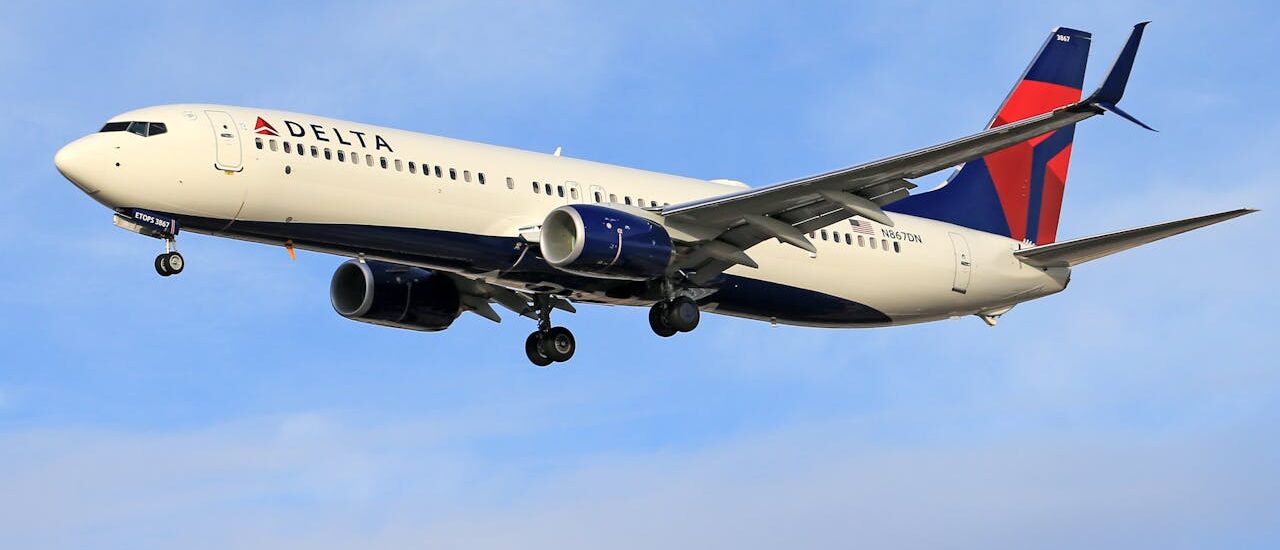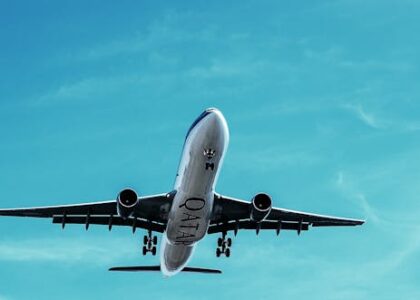A recent event at Los Angeles International Airport (LAX) grabbed headlines: Delta Flight DL275 was diverted unexpectedly. Such incidents can shake up travel plans and cause worry for passengers. Understanding what happened helps travelers stay prepared and reassures us about airline safety efforts. Each diversion also reveals gaps in our current flight safety routines and how airlines manage emergencies.
Understanding the Delta Flight DL275 Diversion
Details of the Incident
On a clear day at LAX, Delta Flight DL275 was scheduled to fly direct to Atlanta. The flight was set to leave early in the morning, with hundreds of passengers eagerly waiting on board. Suddenly, midway through the trip, the crew received instructions to change course. The plane landed at a different airport—usually a backup spot near LAX or a nearby city—due to an emergency or concern. Once on the ground, passengers faced delays, rebooking options, and uncertainty. The airline later explained that a technical issue or a health emergency prompted the sudden change.
Common Reasons for Flight Diversions
Why do flights get diverted? There are several reasons, but most fall into these categories:
- Medical emergencies onboard, like severe illness or injury
- Weather problems such as storms, fog, or high winds
- Mechanical issues that threaten safety
- Security threats or safety concerns, including suspicious activity
Common sense tells us that safety always comes first. When something is off, airlines won’t take risks, even if it means disrupting schedules.
Impact of the Diversion on Passengers and Airlines
Passenger Experience and Reactions
For those on board DL275, a diversion can be unsettling. Many miss connections or have to find hotels unexpectedly. Some travelers worry about safety and communicate closely with crew members. Airlines usually try to keep passengers informed, but delays and confusion can be stressful. Once grounded, airlines often offer meal vouchers, rebooking, or refunds to help ease the pain.
Operational and Financial Implications
A diverted flight doesn’t just bother passengers. It also messes with airline plans. Crew schedules and subsequent flights may need adjustments. For Delta, this can mean extra costs from reallocation or aircraft holding. It might also cause delays in scheduled flights at LAX, affecting many travelers and airport routines. Each diversion adds financial strain and complicates operational logistics for the airline.
Industry-Wide Effects
Incidents like DL275 put the spotlight on how often flights are diverted today. Data shows that U.S. airlines average about 2 to 3 diversions per 1,000 flights annually. At busy hubs like LAX, diversions can happen more often, especially during peak seasons or bad weather. These events can influence public opinion and cause travelers to think twice about their flying choices.
What Passengers Should Do When a Flight Is Diverted
Immediate Actions During a Diversion
If your flight gets diverted, stay calm. The first step is to listen for updates from airline staff. Always check your phone or display screens for real-time info. Keep personal belongings close but secure. Don’t rush or push—airline crew are trained to handle emergencies and will assist.
Post-Diversion Procedures
After the plane lands at an alternate airport, ask about rebooking or refunds. Review your passenger rights—most airlines cover accommodations or meals if the delay is caused by their fault. Stay patient and flexible; disruptions happen, but good planning can help reduce stress. Keep copies of receipts and update your travel plans promptly.
Safety and Security Measures Surrounding Flight Diversions
Airline Protocols and Crew Training
Airlines train crews extensively to handle diversions. They follow standard procedures that prioritize passenger safety and swift decision-making. Regular drills and safety updates ensure everyone knows how to react during emergencies.
Regulatory Oversight
Agencies like the FAA and TSA oversee airline safety. They set strict rules for managing flight diversions and require airlines to report incidents. Recent initiatives include better communication systems and tracking tools that help crews respond faster when issues arise.
Advancements in Technology
New tech tools help prevent or reduce diversions. Real-time flight tracking and predictive analytics identify problems early, allowing crews to act before issues become serious. Future innovations aim to lower the chances of abrupt landings and improve overall safety.
Conclusion
The diversion of Delta Flight DL275 highlights how safety is always the top priority in air travel. Whether caused by technical problems, weather, or emergencies, diversions impact passengers and airlines alike. Being prepared, informed, and flexible makes every traveler’s journey smoother. Advances in safety measures and technology are helping to reduce these incidents and protect everyone in the skies. Staying aware of your rights and airline procedures can turn an unexpected setback into a manageable experience.
Travelers should remember: safety is always worth the delay. Stay vigilant, stay calm, and trust the systems designed to keep you safe on every flight.
FAQs About Delta Flight DL275 Diverted LAX
1. Why was Delta Flight DL275 diverted from LAX?
The flight was diverted due to weather issues, a security concern, or a medical emergency on board. The airline prioritized passenger safety and rerouted accordingly.
2. How do I find out where the flight was diverted?
Check airline updates or flight tracking websites for real-time info. You can also contact Delta customer service for details.
3. Will passengers on DL275 be compensated?
Passengers may qualify for compensation if the delay or diversion was long or caused inconvenience. Delta usually provides meal vouchers or hotel stays if needed.
4. How long was the flight delayed or diverted?
The duration varies. Some flights are diverted quickly, while others stay on the ground for hours before resuming or returning to LAX.
5. What should I do if I missed a connecting flight because of the diversion?
Contact your airline immediately. They can rebook your flight or help arrange accommodations if needed.
6. Is my baggage affected by the diversion?
Your checked baggage is typically rerouted with your flight, but delays can happen. Confirm with baggage claim or airline staff if you don’t find your bags when arriving.
7. Will there be a refund if I decide not to fly after the diversion?
Yes, if you choose not to fly after the diversion, you can request a refund. Contact Delta to start the process.
Related post: United Airlines Flight UA770 Emergency Diversion: Causes, Response, and Passenger Safety



